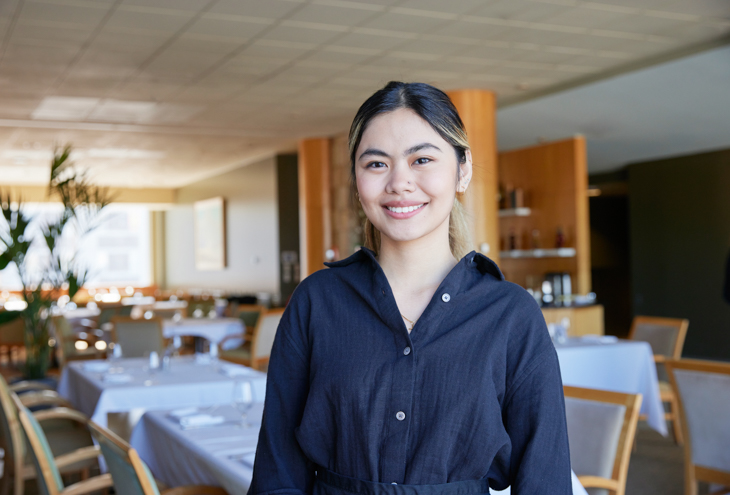SAIT pursuing unique hospitality and tourism training facility through long-term agreement with YWCA Banff, preserving essential community services in the area
Agreement aims to strengthen community well-being and sustainable hospitality and tourism growth in the region
MEDIA RELEASE

Banff, AB (Thursday, Nov. 14, 2024) — The Southern Alberta Institute of Technology (SAIT) and the YWCA Banff are working together to help shape a bright future for hospitality and tourism in Banff, with a shared commitment to creating long-term benefits for the community and tourism sector.
Through this partnership, a portion of YWCA's building will be transformed into a state-of-the-art teaching facility and student housing. The number of YWCA units dedicated to affordable and transitional housing, as well as emergency shelter, will remain.
The renovation will be a game-changer for both education and the community, supporting a sustainable tourism economy and strengthening the YWCA's ability to deliver and expand its critical services.
"This partnership with SAIT offers an incredible opportunity to re-think how we can use our space to better fulfill our mission, respond to the community's evolving needs and ensure those who rely on our services will continue to have the support they need," says Ebony Rempel, YWCA Banff CEO.
SAIT's School of Hospitality and Tourism, ranked #14 globally and #1 in Canada, offers world-class programs in hospitality, tourism management and the culinary arts, preparing students for real-world success.
"This collaboration is about creating a lasting positive impact on the community, the local tourism sector and the future workforce of hospitality professionals," says James Overall, Dean, SAIT School of Hospitality and Tourism. "Banff is a world-renowned destination and this unique partnership will give our students invaluable experience while allowing them to contribute directly to the local economy."
SAIT's presence is intended to offer a continuous flow of highly skilled professionals, ensuring a future-ready workforce for Banff’s hospitality and tourism industries.
Construction is anticipated to begin in 2025, pending funding support as well as government approvals on several levels including Parks Canada and the Town of Banff, and provincial government approvals for SAIT programming. SAIT expects to deliver programming in the facility by Fall 2026.
About SAIT
Established in 1916, SAIT was the first of its kind, publicly funded technical school in North America. As a global leader in applied education and research — serving nearly 40,000 students annually — SAIT offers certificate, diploma, post diploma, apprenticeship and applied degree programs, baccalaureate degrees, corporate training and more than 1,000 continuing education courses, along with four dedicated, award-winning areas of research and capacity for new and emerging research. Curriculum and research priorities are developed through industry partnerships to ensure graduates have the skills and knowledge required to fulfill the demand for talent. SAIT is honoured to be recognized by Mediacorp Canada Inc. as one of Alberta’s Top Employers for 2024, and to be ranked fourth by Research Infosource Inc. in the Top 50 Research Colleges in Canada for 2024. CEOWORLD Magazine ranked the SAIT School of Business #49 on the list of Best Business Schools in the World for 2024, and the School of Hospitality and Tourism placed #14 on their list of Best Hospitality and Hotel Management Schools in the World for 2024.
Connect with us: facebook.com/SAIT | twitter.com/SAIT | instagram.com/SAIT

Oki, Âba wathtech, Danit'ada, Tawnshi, Hello.
SAIT is located on the traditional territories of the Niitsitapi (Blackfoot) and the people of Treaty 7 which includes the Siksika, the Piikani, the Kainai, the Tsuut’ina and the Îyârhe Nakoda of Bearspaw, Chiniki and Goodstoney.
We are situated in an area the Blackfoot tribes traditionally called Moh’kinsstis, where the Bow River meets the Elbow River. We now call it the city of Calgary, which is also home to the Métis Nation of Alberta.